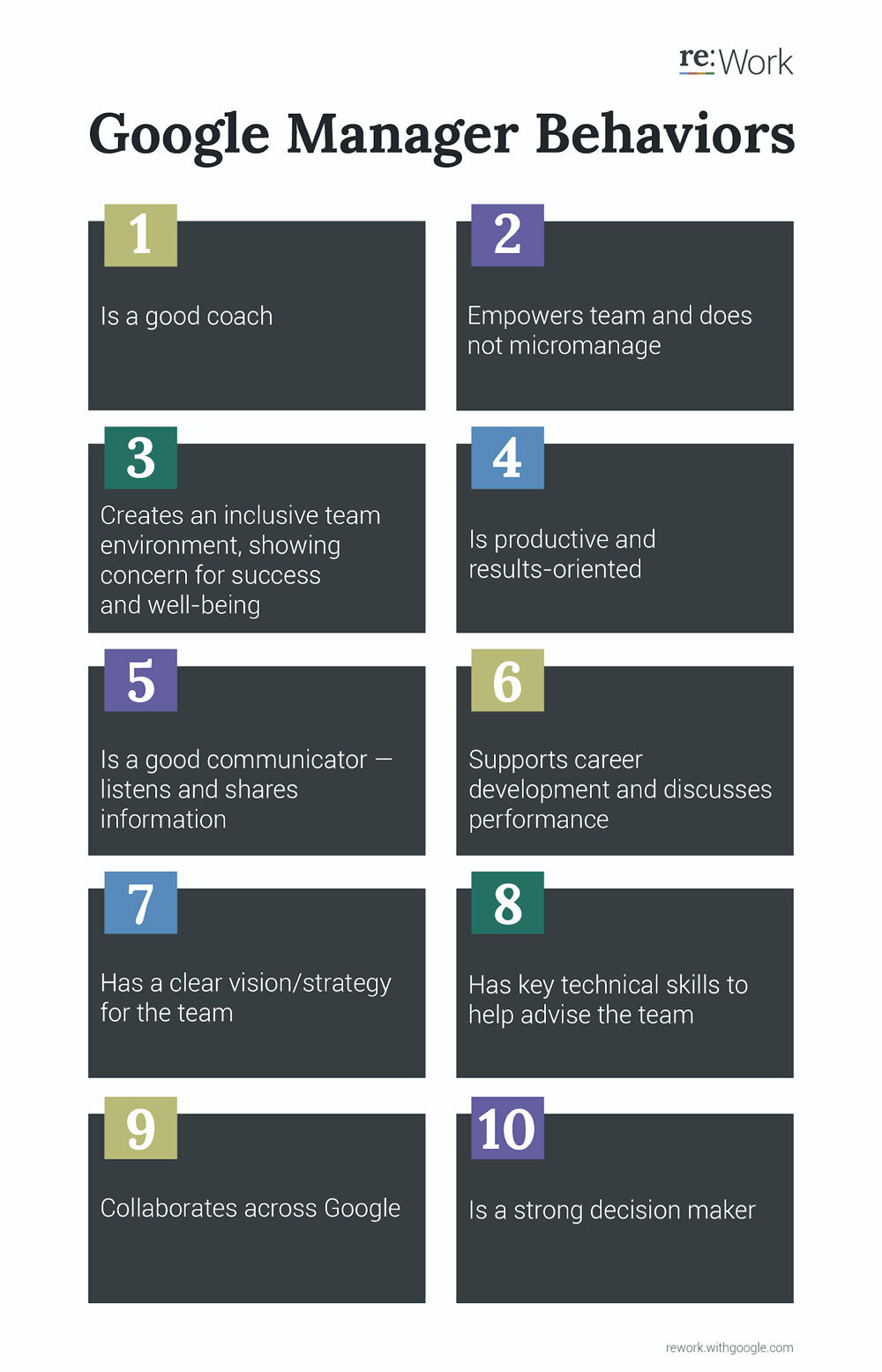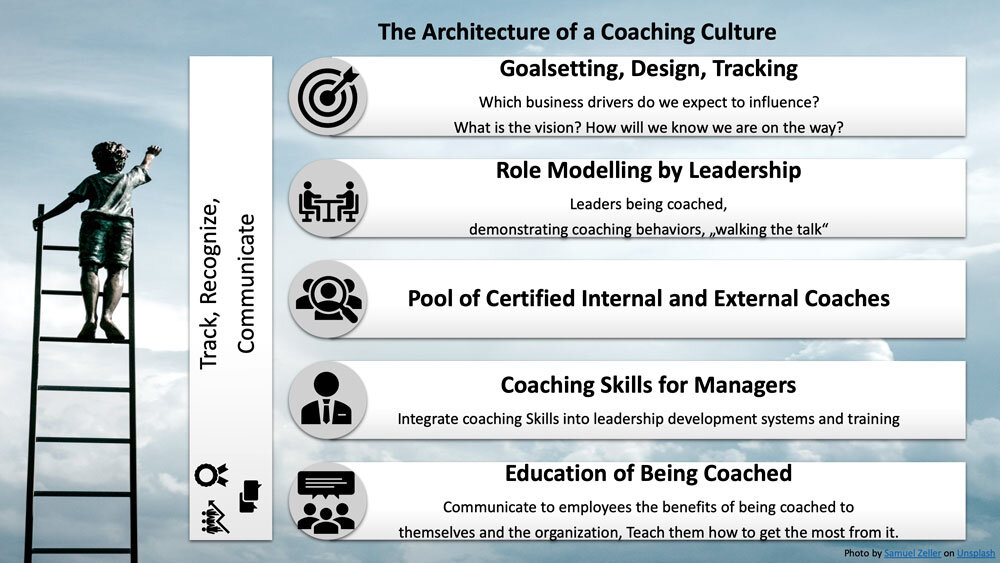How to create a coaching culture?
Transformational Leadership – The Link to a Coaching CulturE
“If your company’s leadership training doesn’t integrate coaching - then sadly they’re behind the curve! If you are in a leadership role and coaching is not in your toolkit - then sadly you may be failing your followers!”
What has started as an initiative in 2016 at Bosch China by training Coaching Practices for Leaders has become a movement towards Transformational Leadership within the greater organization and has the potential to support us in our way of how #WeLEADBosch.
Within the past years I witnessed and contributed to the changes in leadership at Bosch in the same way I developed myself towards a leader and coach and towards being a transformational leader. In the following article, I aim to provide a general approach to implement a coaching culture and to share what Bosch in China has done so far.
What are the key leadership skills?
With its Oxygen Project, Google has done an extensive research on what makes a manager great and what qualities people wanted in their leaders. The result showed that being a good coach is one of the behaviors that stood out. Although I see the manager as coach role critical (Manager as coach, does it really work?) since there is a conflict in role and responsibility, I see the benefit of developing coaching skills and a coaching mindset for the organization. While being a coach is facilitating the transformation in others, the journey towards transformational leadership starts with yourself (my personal journey of transformation, here).
If coaching can support the transformation in others, wouldn’t it be in support of transforming an organization? And if this is the case wouldn’t it be good for coaching to become a bigger part in our transformation as an organization?
I see that coaching progresses out of the confidential one-on-one process into the organization and supports the change journey. It has the potential to become an integral part of a company’s culture, where external and internal coaches as well as managers that apply coaching skills co-exist and the coaching approach is a key aspect in “how we do our business”.
What supports the growth of coaching in an organization?
The Architecture that supports a Coaching Culture
The foundation of a coaching culture requires the alignment of the coaching strategy, the organizational culture change as well as a sound coaching infrastructure in the broader organizational context. Topics that provide input for further contemplation and sharing. Here, I focus on the architecture that supports the coaching culture.
In the goal setting, design and tracking it is required to engage with the stakeholders to explore and elaborate which business drivers do we expect to influence, how do we envision the integration of coaching and how will we know that we are on our way? The key stakeholders are the chief executives with their boards, the HR and HRD, coaching champions that currently promote coaching, internal and external coaches, organization developers and last but not least managers who apply coaching skills.
“Walking the talk” is one of the most convincing factors when it comes to change and transformation. Therefore, coaching has to come out of the shadow and the confidential one-on-one coat that it wears. Role modelling by leaders covers two aspects. Firstly, to promote coaching and its benefits by having a coach and secondly by portraying coaching behaviors as part of their leadership.
In most organizations a pool of external coaches already exists. The next step is to develop additional internal coaching capacity ranging from internal coaches to managers that apply coaching skills. With the first group you increase the range of people that benefit from being coached since you add up to the external resources. Additionally, it has been reported that besides economic benefits for the organization, those internal coaches became better leaders in their own teams and became more aware of the organization as a whole. For the second group as well as when educating the organization on being coached you embed the key coaching skills in the approach to managing and to develop an understanding of what is coaching and how to benefit from it for oneself and the organization.
Building up the architecture that builds and supports a coaching culture requires investment, long-term commitment and support from the stakeholders. It does not come easy and it also has to prove its return on investment. After all, it has to be tracked, recognized and communicated continuously. Once established and maintained, a coaching culture can link and support to other aspects of transformation and cultural change.
How did we do it at Bosch in China? (Case Study)
Within Bosch there are several initiatives to promote and integrate coaching. In China, the team around Blake Cai, which forms the Bosch Training Center (aka The Leadership Culture Crew for Bosch Asia) was setting the pace in the past years. I'm glad that I joined in 2016 from the very beginning and have been able to share and integrate my expertise in coaching and my experience in leadership as well as learning from each other on how to integrate coaching further. How far did we go and what have we done?
Having some initial thoughts about what leadership style could be beneficial for the transformational challenges ahead, identifying the coaching approach and mindset as one key element. We started to train managers on coaching practices. In the beginning we covered Vice Presidents and Directors and by developing internal trainers we were able to reach all levels of management and are now at a stage where it is accessible to a broad audience.
Spreading the understanding of coaching in the wider organization took place by those multipliers and by events such as coaching days, key notes and other promotions.
Out of those people, who were on the training or brought already coaching qualification with them, we identified champions that enthusiastically volunteered as internal coaches and acted as champions in their organizations. Those, underwent further training in transformational leadership and coaching and formed a pool of internal coaches as well as a community of practice with regular exchange and additional education, incorporating mindfulness, neuroscience and positive leadership into their journey and into leadership development program designs.
Over the past three years this movement has grown significantly within China and across Asia Pacific. It goes without saying that it wouldn’t have been possible without the sponsorship of Executives such as Erika Rasch and Rosa Lee as well as other business leaders who were convinced of the benefits of coaching for the organization.
The next steps would be to work further on the broader vision and strategy and defining and measuring the benefits of coaching at each step of the journey. As well as the integration of coaching in to our culture that we describe as WeLEADBosch.
What’s next? - Challenges ahead!
I’m curious to see how this movement and other initiatives are progressing further and would like to gather experiences from other organizations that went through or are currently in the process of integrating coaching in their culture (feel free to share in the comments).
The challenges ahead are in demonstrating the value that coaching brings to the organization beyond individual development. In the worst case it will be questioned and decline or goes back to a benefit for the privileged.
I would love to see that coaching is linked to personal and organizational benefit and becomes an essential part of organizational change endeavors.
To achieve that it requires the stakeholders reflect on their coaching strategy and objectives that improve individual, team and organizational performance, the focus on systemic team coaching, the sustainability of internal coaches and integrating the aspect of coaching into the organizational culture, that is connected, effective and agile and thus in support of the transformational challenges ahead.




